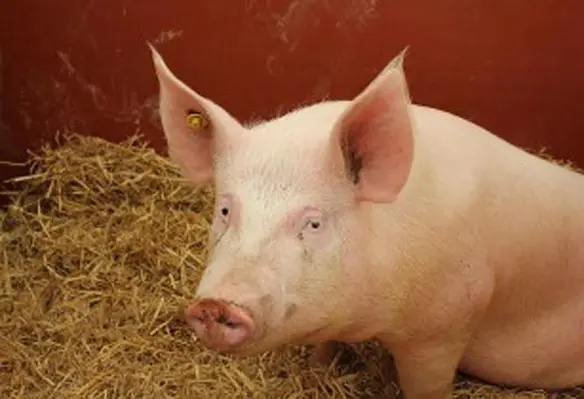Wild boar can be immunised against African Swine Fever (ASF) by a new vaccine delivered to the animals in their food, according to a study published in Frontiers in Veterinary Science
The study provides evidence that this immunity can be passed on via contact with immunised individuals, but further studies are needed to examine exactly how this occurs, as well as the safety of repeated administration.
“African swine fever is of enormous concern to the pig industry,” said Dr Jose Angel Barasona, a researcher at the VISAVET Health Surveillance Centre and co-author of this research.
“Our study demonstrates the effectiveness of the first oral vaccine against this disease on Eurasian wild boar. Overall, we demonstrate that oral immunization of wild boar conferred 92% protection against a highly pathogenic strain of African Swine Fever, which is currently circulating in Asia and Europe.”
High fever, loss of appetite and death
Infected animals can suffer terribly. Symptoms include high fever, depression, loss of appetite, vomiting, diarrhoea, abortion in pregnant sows, as well as redness of skin on the ears, abdomen and legs.
African swine fever affects more than 55 countries on three continents, including China, which contains nearly half of the world’s pig population. It is highly contagious and can be spread via contaminated feed and pork products, as well as shoes, clothes, vehicles, knives and equipment. Transmission can also occur by the movement of infected livestock and across wild boar populations. It is this latter form of infection that Barasona and his colleagues hope to prevent.
“Wild boar is the most severely affected by this virus in Europe and to date, none of the control measures has been effective. The importance of vaccinating wild boar was demonstrated during the 2000s when Classical Swine Fever affected different European countries, and an oral vaccine was used to reduce the incidence of infection in the wild populations in Germany.”
Immunity can be passed on via contact
When tested, as well as proving its effectiveness against one of the most dangerous strains of African swine fever, it revealed an additional capability to immunise other wild boar through contact with orally vaccinated animals.
“The ‘shedding’ of this vaccine might help amplify vaccination coverage, reducing the need for expensive production and large-scale administration of the vaccine in the field,” explains Barasona.
This vaccine, which would be administered in bait to the wild animals, represents considerable progress in the control of African Swine Fever in the wild and, subsequently, at the domestic/wildlife interface. However, Barasona cautions more research is needed before it can be used widely.
To read the original article, please click here




